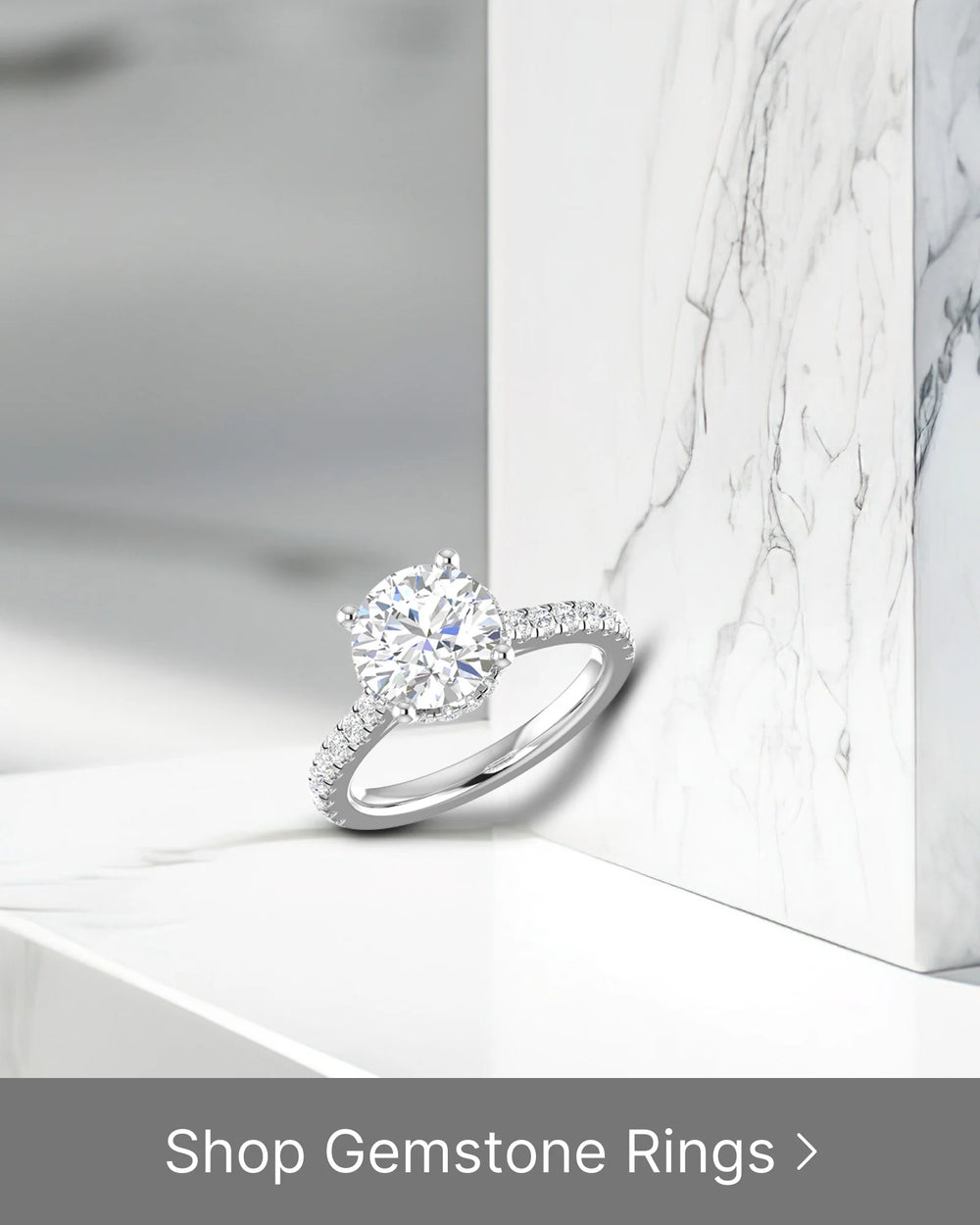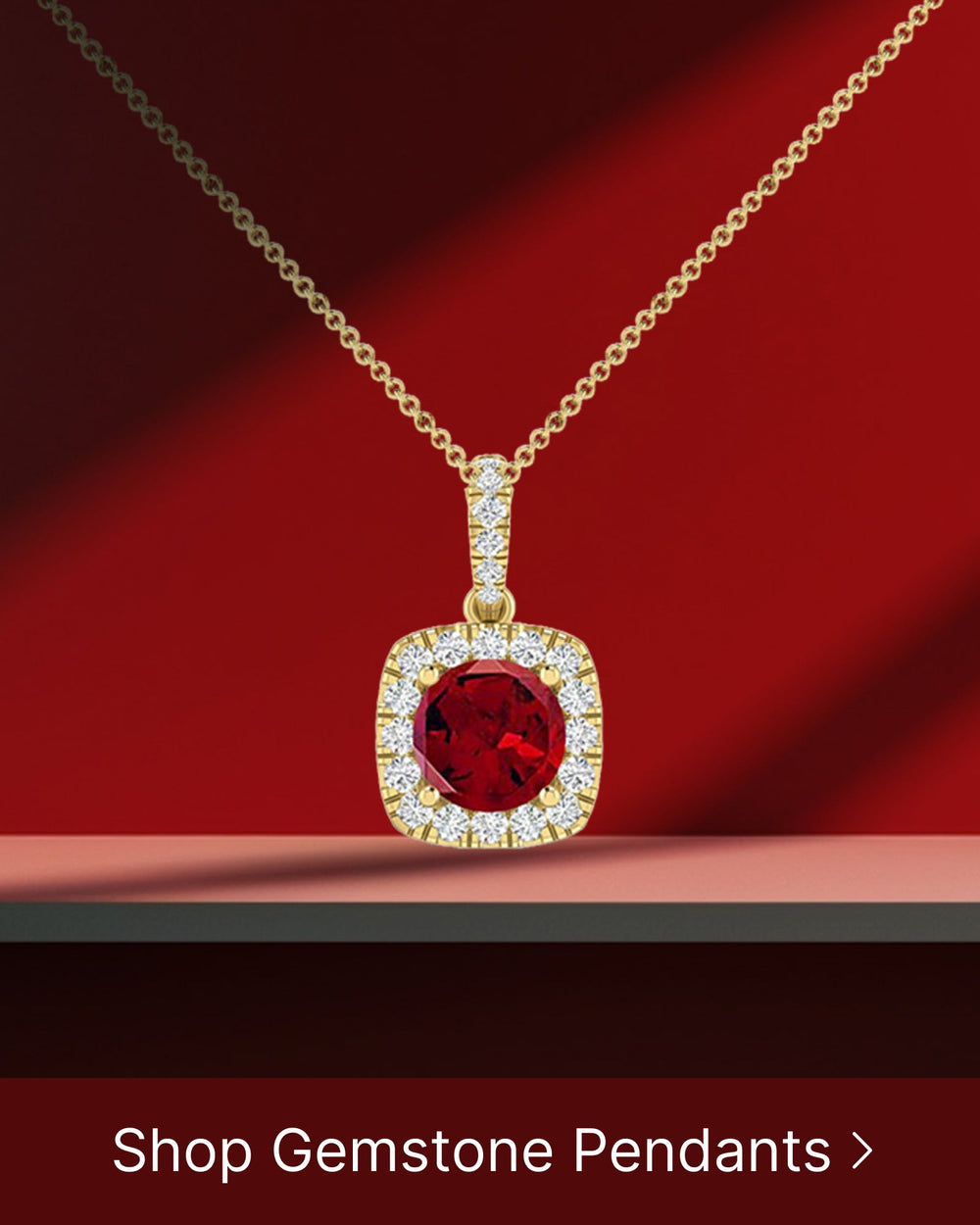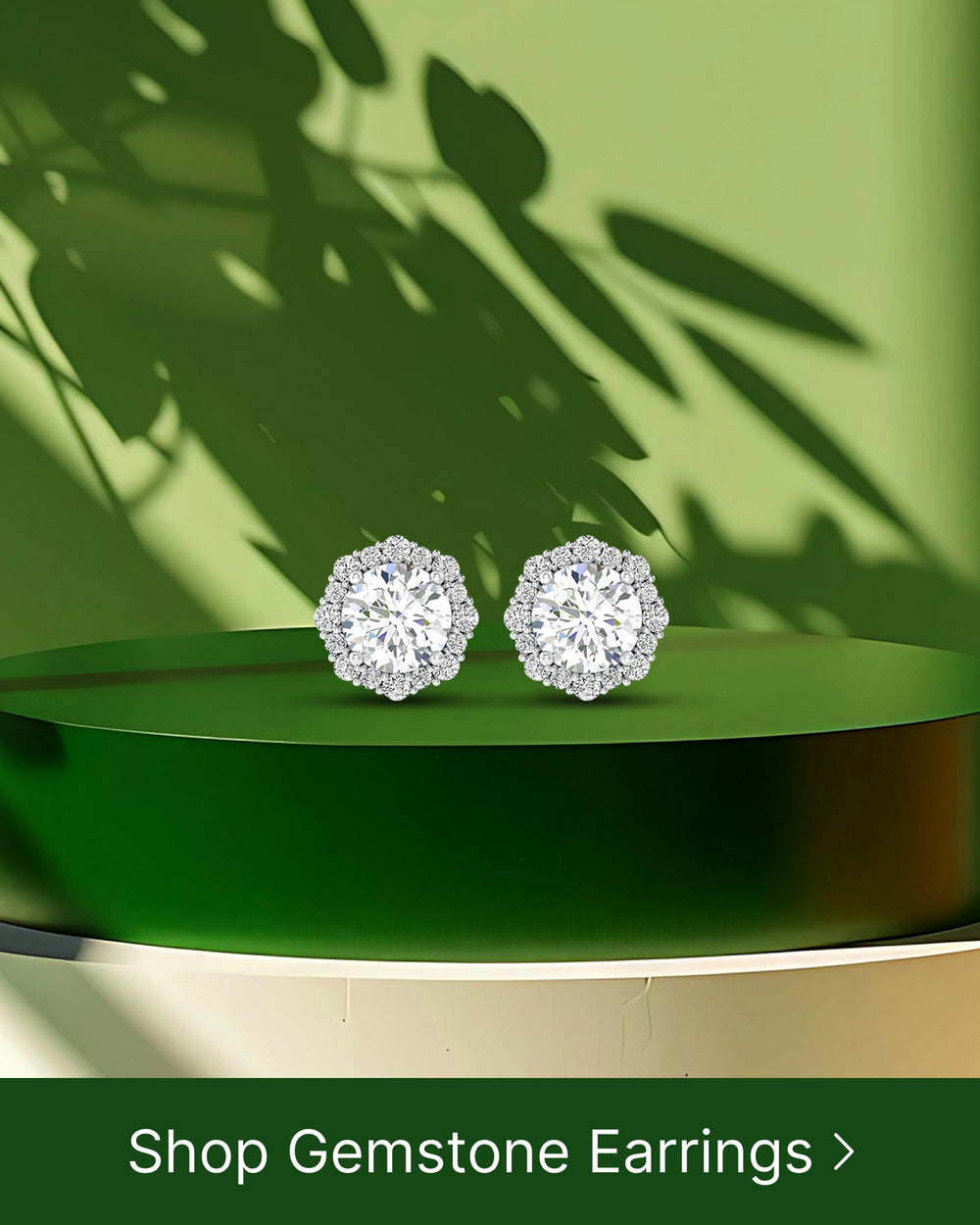In today's digital age, online estate jewelry auctions have become a popular way for collectors and enthusiasts to acquire unique and valuable pieces. Whether you're a seasoned buyer or just starting out, it's important to understand the ins and outs of these auctions in order to make informed decisions and maximize your chances of success. In this comprehensive guide, we will delve into the basics of estate jewelry, explore the online auction landscape, provide tips for preparing for your first auction, discuss bidding strategies for success, and highlight the importance of verifying authenticity and value. By the end, you'll be well-equipped to navigate the world of online estate jewelry auctions with confidence.
Understanding the Basics of Estate Jewelry
Estate jewelry refers to any previously owned piece that is being sold, typically after the original owner has passed away or decided to part with their collection. These pieces often carry a sense of history and are sought after for their craftsmanship, unique design, and potential investment value. It's essential to have a solid understanding of estate jewelry, including its definition and historical significance, before diving into online auctions.
Defining Estate Jewelry
Estate jewelry encompasses a wide range of pieces, including rings, necklaces, bracelets, earrings, and brooches. These items can be made of various materials, such as precious metals like gold and silver, gemstones like diamonds and emeralds, or even more unconventional materials like ivory or wood. What sets estate jewelry apart is the notion of it being pre-owned, giving each piece its own story and character.
When exploring estate jewelry, you may come across pieces that have been passed down through generations, carrying with them the memories and experiences of previous owners. Imagine a stunning diamond necklace that was once worn by a glamorous socialite attending extravagant parties in the roaring twenties. Or picture a delicate gold bracelet that adorned the wrist of a young bride on her wedding day, symbolizing love and commitment. Each piece holds a unique narrative, making it more than just a beautiful accessory.
Furthermore, estate jewelry can also include pieces that were created by renowned designers or artists, adding an extra layer of prestige and value. For example, you might stumble upon a vintage Cartier ring or a Tiffany & Co. necklace, both of which are highly coveted by collectors and enthusiasts alike. These pieces not only showcase exceptional craftsmanship but also carry the legacy of the designers, making them even more desirable.
The Historical Significance of Estate Jewelry
Every piece of estate jewelry has a unique historical context that adds to its overall appeal. Whether it's a vintage Art Deco ring or a Victorian-era necklace, these pieces often reflect the fashion styles and societal influences of the time they were created. Understanding the historical significance of estate jewelry can help you appreciate and evaluate its value.
Take, for instance, an Art Nouveau brooch adorned with intricate floral motifs. This style emerged in the late 19th century and early 20th century, characterized by its emphasis on natural forms and flowing lines. Owning a piece from this period not only allows you to wear a stunning accessory but also transports you back to a time when art and design were undergoing a significant transformation.
Similarly, Victorian-era estate jewelry reflects the elegance and opulence of the 19th century. These pieces often feature intricate metalwork, colorful gemstones, and sentimental motifs like hearts and flowers. By wearing a Victorian necklace or a pair of earrings, you become a part of a bygone era, channeling the grace and sophistication of the Victorian society.
Exploring the historical significance of estate jewelry can be a fascinating journey through time. It allows you to connect with the past, appreciate the artistry of different periods, and gain a deeper understanding of the cultural influences that shaped the jewelry of each era.
The Online Auction Landscape
With the advent of the internet, buying and selling estate jewelry has never been easier. Numerous online platforms have emerged, connecting buyers and sellers from all around the world. To navigate this landscape successfully, it's crucial to familiarize yourself with the key players and the overall process of online auctions.
Online estate jewelry auctions have revolutionized the way people buy and sell valuable pieces. In the past, individuals had to rely on local jewelers or attend physical auctions to find unique and exquisite jewelry. However, with the rise of online platforms, the world of estate jewelry has become more accessible than ever before.
Key Players in Online Jewelry Auctions
When it comes to online estate jewelry auctions, there are several reputable platforms that have established themselves as industry leaders. These platforms provide a secure and transparent marketplace for buyers and sellers to interact. Some of the key players in this space include Sotheby's, Christie's, and Bonhams, each offering a wide range of high-quality estate jewelry pieces.
Sotheby's, founded in 1744, is one of the oldest and most prestigious auction houses in the world. They have a long-standing reputation for curating exceptional collections and attracting discerning buyers. Christie's, established in 1766, is another renowned auction house known for its expertise in art, jewelry, and collectibles. Bonhams, although relatively newer compared to Sotheby's and Christie's, has quickly gained recognition for its diverse range of auctions, including estate jewelry.
These platforms not only provide a platform for buying and selling estate jewelry but also offer additional services such as appraisals, authentication, and expert advice. Their extensive networks and global reach ensure that buyers have access to a wide variety of jewelry pieces, ranging from antique and vintage to contemporary designs.
The Process of Online Auctions
Participating in an online estate jewelry auction involves a series of steps. First, you'll need to create an account on the auction platform of your choice and familiarize yourself with its terms and conditions. This initial registration process ensures that only genuine buyers and sellers are part of the online community, enhancing the overall trust and security of the platform.
Once you have registered, you can start exploring the vast collection of estate jewelry available for auction. The online platforms provide detailed descriptions, high-resolution images, and sometimes even videos of the jewelry pieces, allowing you to examine them closely from the comfort of your own home. This level of transparency ensures that buyers can make informed decisions based on the quality, condition, and authenticity of the jewelry.
Conducting thorough research on each piece is essential before placing a bid. This research may involve studying the history of the piece, understanding its provenance, and consulting with experts or appraisers to assess its value. Online platforms often provide access to specialists who can answer any questions you may have about the jewelry, further enhancing the buying experience.
Once the auction begins, you'll be able to place bids on your desired items. The bidding process is typically time-limited, creating a sense of excitement and urgency among participants. As the auction progresses, you may find yourself engaged in a bidding war with other buyers who share your enthusiasm for a particular piece. This competitive aspect adds an element of thrill to the online auction experience.
When the auction concludes, the highest bidder wins the piece. The online platform will then facilitate the payment and delivery process, ensuring a smooth and secure transaction for both the buyer and the seller. Depending on the platform, there may be various payment options available, including credit cards, wire transfers, or escrow services.
Once the payment is complete, the jewelry will be carefully packaged and shipped to the buyer's designated address. Online auction platforms work with trusted shipping partners to ensure that the jewelry arrives safely and in a timely manner. Some platforms even offer insurance options to protect the jewelry during transit, providing additional peace of mind to buyers.
In conclusion, online estate jewelry auctions have revolutionized the way people buy and sell valuable pieces. The key players in this industry, such as Sotheby's, Christie's, and Bonhams, provide a secure and transparent marketplace for buyers and sellers to connect. The process of participating in an online auction involves creating an account, conducting thorough research, placing bids, and completing the payment and delivery process. With the convenience and accessibility offered by online platforms, estate jewelry enthusiasts can now explore and acquire unique pieces from around the world with ease.
Preparing for Your First Auction
Before jumping into your first online estate jewelry auction, it's important to lay the groundwork for a successful experience. This involves conducting comprehensive research on jewelry pieces that interest you, as well as establishing a budget to guide your bidding decisions.
Researching Jewelry Pieces
Thorough research is essential when it comes to estate jewelry. Take the time to learn about different styles, eras, and designers to develop a deep understanding of what you're looking for. Familiarize yourself with different types of gemstones, their characteristics, and potential flaws to make informed purchasing decisions. Utilize online resources, books, and expert advice to expand your knowledge.
Setting a Budget
Online estate jewelry auctions can be fast-paced and exciting, making it easy for bidding to escalate quickly. It's essential to set a realistic budget and stick to it to prevent overspending. Assess your financial capabilities and determine the maximum amount you're willing to bid on a particular piece. Setting a budget ensures that you don't get carried away in the heat of the moment.
Bidding Strategies for Success
When it comes to bidding in online estate jewelry auctions, employing effective strategies can significantly increase your chances of success. It's important to consider factors such as timing, competition, and market value to make strategic bidding decisions.
When to Bid
Timing can be critical in online auctions. A common strategy is to wait until the last moments of the auction to place your bid, also known as sniping. By doing so, you minimize the chances of engaging in a bidding war and potentially overpaying for a piece. However, this tactic can be risky, so it's important to monitor the auction closely and be ready to act swiftly when the time comes.
How to Outbid Competitors
Outbidding competitors requires careful observation and calculated moves. Pay attention to the bidding patterns of other participants, especially those who are consistently placing high bids. Consider incrementally increasing your bids to keep the momentum in your favor. Remember, focusing on the value and your predetermined budget should guide your bidding decisions, rather than getting caught up in the thrill of competition.
Verifying Authenticity and Value
Before finalizing your purchase in an online estate jewelry auction, it's crucial to verify the authenticity and value of the piece. Understanding how to recognize genuine pieces and estimate their value can help prevent disappointment and ensure that you're investing in high-quality jewelry.
Recognizing Genuine Pieces
Estate jewelry can sometimes be accompanied by certificates of authenticity or historical documentation that verifies its origins. It's important to carefully examine the piece for any signs of wear, craftsmanship, and hallmark stamps that indicate the material and maker. If you have any doubts, consider seeking the expertise of a reputable appraiser or jeweler to validate the authenticity of the piece.
Estimating the Value of Estate Jewelry
Determining the value of estate jewelry involves assessing various factors, such as the materials used, the craftsmanship, the condition of the piece, and its historical significance. Researching comparable pieces and consulting experts in the field can provide valuable insights into the market value of a specific item. Remember, value can be subjective, so it's important to strike a balance between your personal appreciation and objective assessments when evaluating the price.
Mastering the art of online estate jewelry auctions requires a combination of knowledge, research, and strategic decision-making. By understanding the basics of estate jewelry, familiarizing yourself with the online auction landscape, preparing thoroughly, and employing effective bidding strategies, you'll be well on your way to building a collection of unique and valuable pieces. Remember to always verify the authenticity and value of the jewelry before making your final purchase. Happy bidding!







